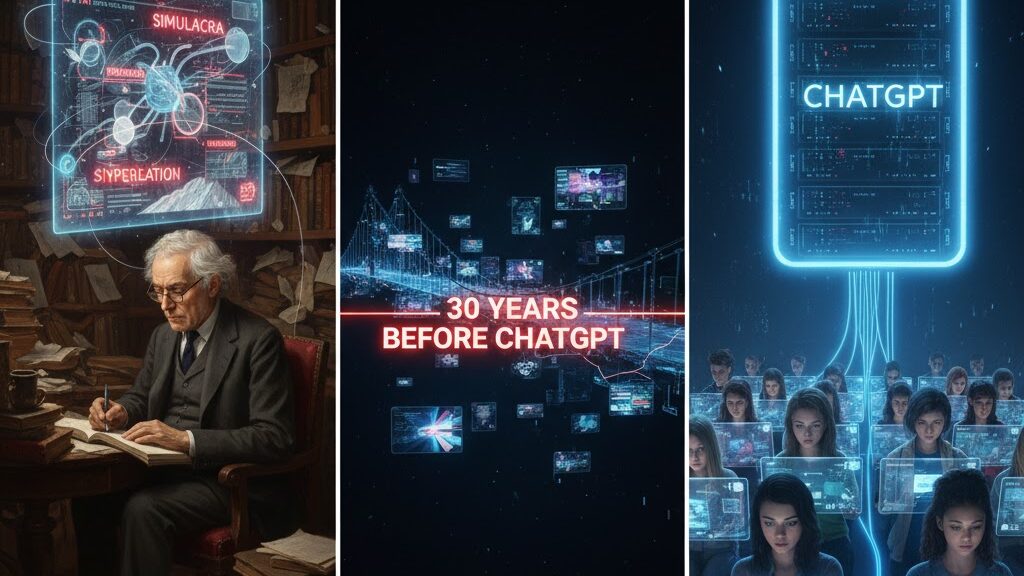
Source
The Conversation
Summary
Bran Nicol argues that Jean Baudrillard’s cultural theory anticipated the logic and impact of today’s AI decades before its emergence. Through concepts such as simulacra, hyperreality and the disappearance of the real, Baudrillard foresaw a world in which screens, networks and digital proxies would replace direct human experience. He framed AI as a cognitive prosthetic: a device that simulates thought while encouraging humans to outsource thinking itself. Nicol highlights Baudrillard’s belief that such reliance risks eroding human autonomy and “exorcising” our humanness, not through machine domination but through our willingness to surrender judgement. Contemporary developments—AI actors, algorithmic companions and blurred boundaries between human and machine—demonstrate the uncanny accuracy of his predictions.
Key Points
- Baudrillard predicted smartphone culture, hyperreality and AI-mediated life decades early.
- He viewed AI as a prosthetic that produces the appearance of thought, not thought itself.
- Outsourcing cognition risks diminishing human autonomy and “disappearing” the real.
- Modern AI phenomena—deepfakes, AI influencers, chatbots—align with his theories.
- He believed only human pleasure and embodied experience distinguished us from machines.
Keywords
URL
Summary generated by ChatGPT 5


